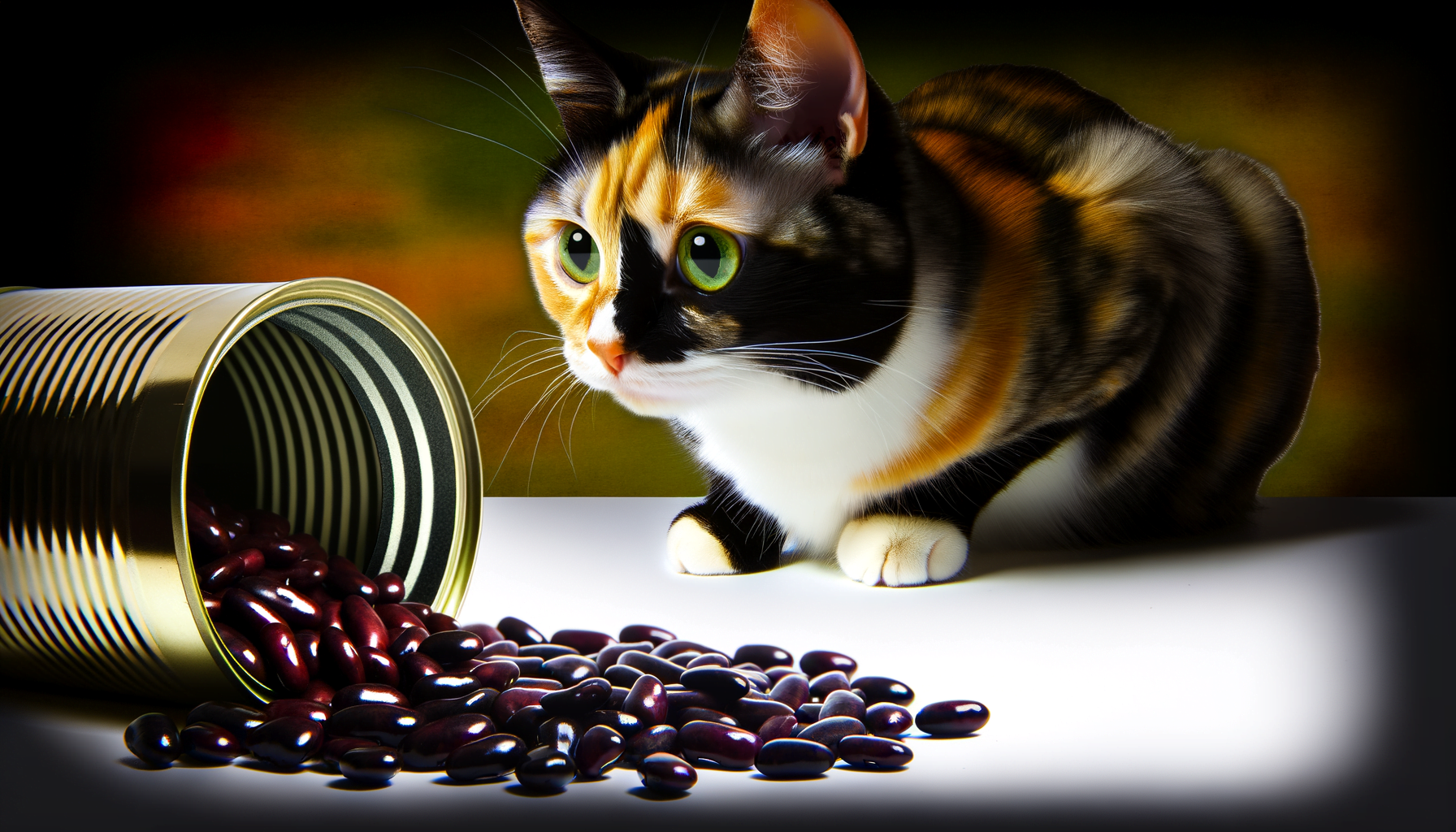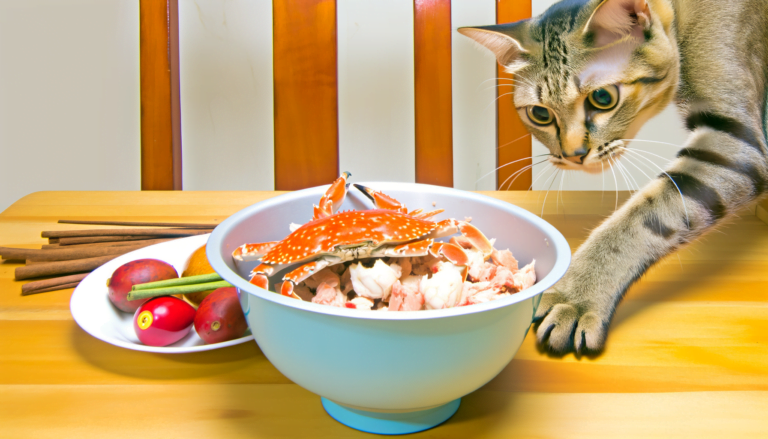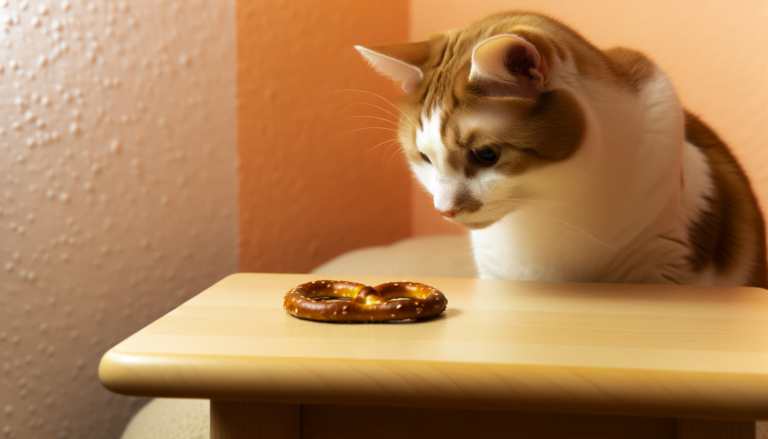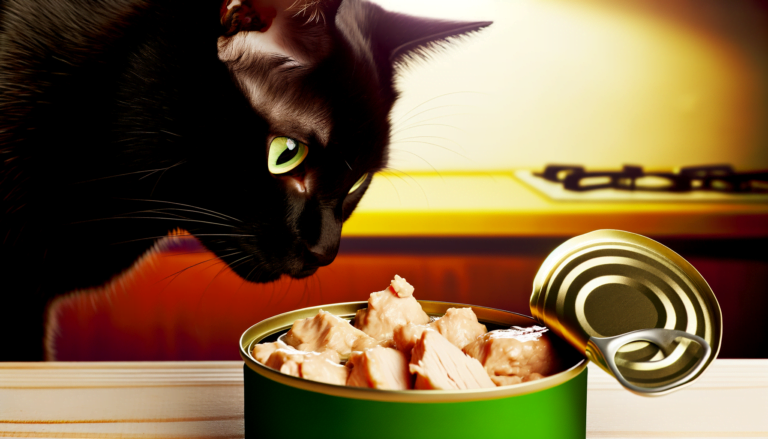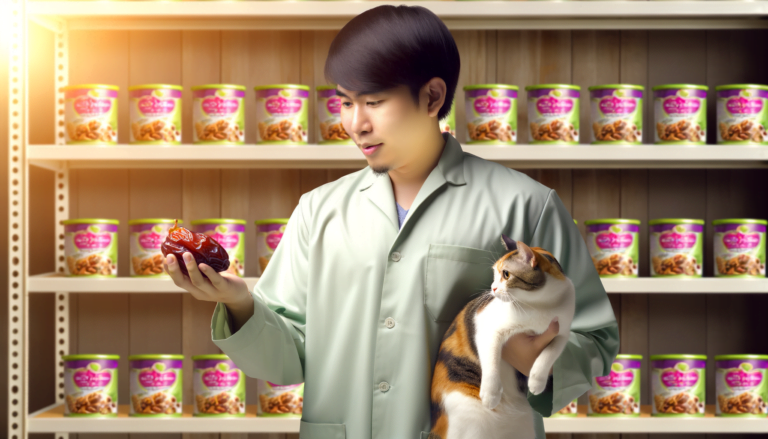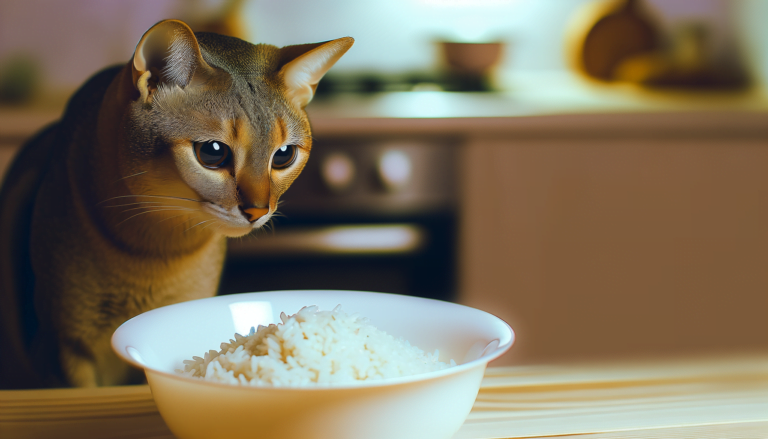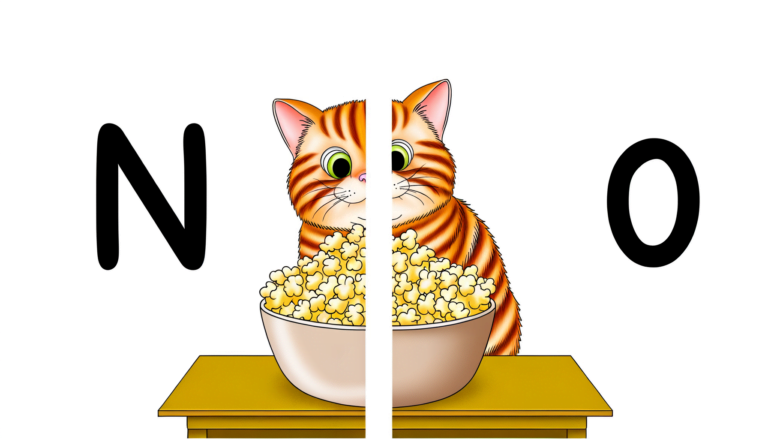Unraveling Feline Diets: The Truth About Cats and Black Beans
While cats can safely consume black beans without immediate harm, they are not a recommended part of a feline’s diet. As obligate carnivores, cats require a diet predominantly composed of meat to supply essential nutrients such as taurine, arachidonic acid, and vitamin A which they are unableto synthesize themselves. Though black beans are high in protein and fiber, cats cannot efficiently process this plant-based protein, and the high fiber can disrupt their digestive system. Additionally, uncooked or improperly cooked beans can be dangerous due to potentially harmful substances present. Thus, it is advisable to feed cats with a nutritionally balanced diet designed specifically for their needs rather than supplementing their meals with black beans.
Potential Health Benefits of Black Beans for Cats
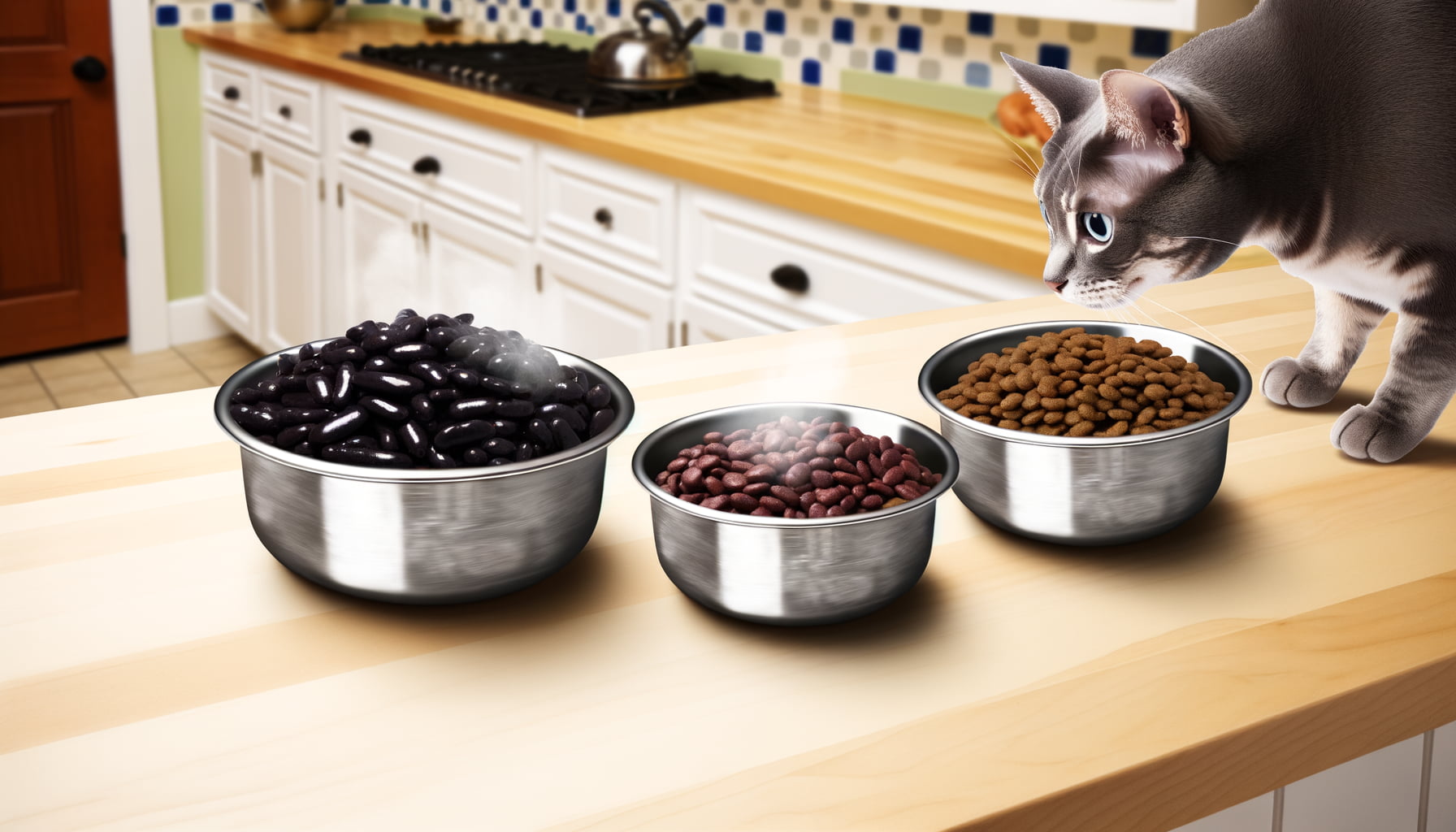
Noted for their richness in dietary fiber, black beans can play a nurturing role in maintaining a cat’s digestive health. Fiber can aid in the process of excreting waste, reducing the chances of constipation or other related complications. This could, in turn, promote the overall well-being of your feline friend.
Moreover, black beans are packed with essential nutrients that may fortify a cat’s health. For instance, their high protein content can support muscle growth and repair, respectively. The presence of antioxidant compounds can potentially maintain cell health, reducing the risks associated with oxidative stress.
It is crucial, however, to understand that black beans should never constitute a large portion of a cat’s diet. The addition of black beans to a cat’s meal plan should be seen as a supplement rather than a primary food source. As with all things, moderation is key when it comes to ensuring the health and vitality of your feline companion.
Possible Risks and Side Effects of Black Beans in a Cat’s Diet
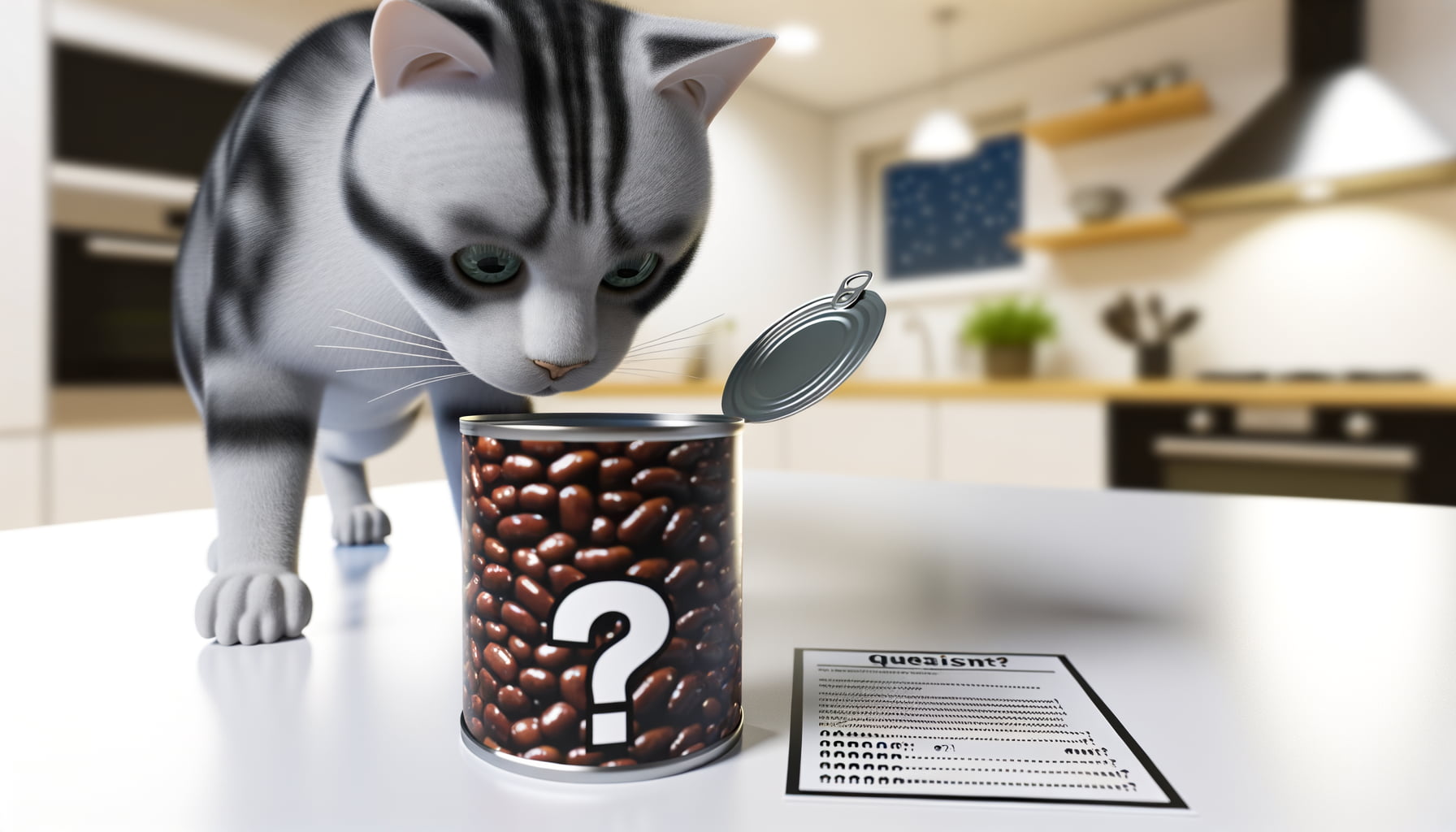
Feeding black beans to your cat calls for a mindful approach. One potential risk involves gastrointestinal trouble. Cats boast a meat-oriented digestive system that sometimes struggles to process plant-based foods like black beans. This could lead to unpleasant symptoms like flatulence, bloating, and diarrhea if the beans are not eased into the diet.
Allergic reactions, though rare, are a plausible risk when introducing any new food into your feline’s regimen, including black beans. Symptoms may range from mild skin irritations to more severe responses such as difficulty breathing. If such symptoms appear, it’s vital to contact your veterinarian immediately.
Also worth noting is the inherent risk of sodium absorption from canned beans. A cat’s diet needs to be low in sodium, and excessive intake could lead to complications like high blood pressure and heart disease. Thus, make sure to rinse canned black beans thoroughly or stick to cooked, unflavored varieties.
Understanding the Basics: Can Cats Eat Black Beans?
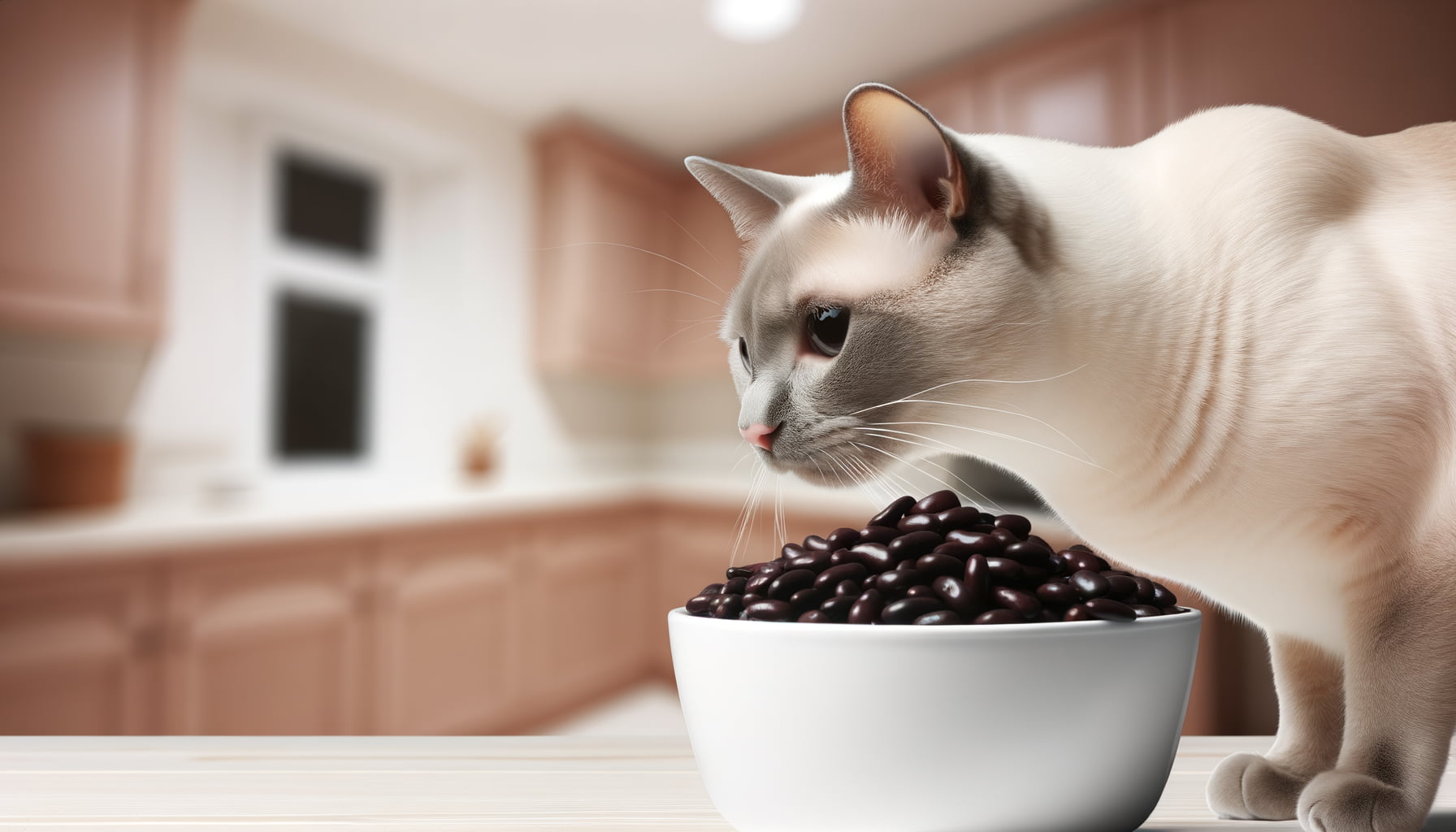
When approaching the question, Can Cats Eat Black Beans, it’s essential to consider feline biology and dietary needs. Cats, classified as obligate carnivores, thrive on a diet mainly consisting of meat. Their systems are not designed to process certain types of plant-based foods efficiently. But, that does not unequivocally rule out all forms of plant consumables, such as black beans.
Technically, black beans aren’t toxic or harmful to cats, meaning that they won’t cause immediate illness or injury. Occasionally, some cats may even take a liking to these beans, nibbling on a few cooked ones without any obvious negative effect. Nevertheless, cats lack the necessary enzymes to break down plant matter appropriately resulting in limited nutritional absorption.
Therefore, while a few black beans won’t necessarily hurt your cat, they should never become a staple in their diet. Furthermore, beans should always be thoroughly cooked, as raw or undercooked beans can cause digestion issues. It’s most beneficial to stick to protein-centric meals for cats, considering their inherent dietary tendencies.
Expert Tips: How to Safely Introduce Black Beans into Your Cat’s Meal Plan
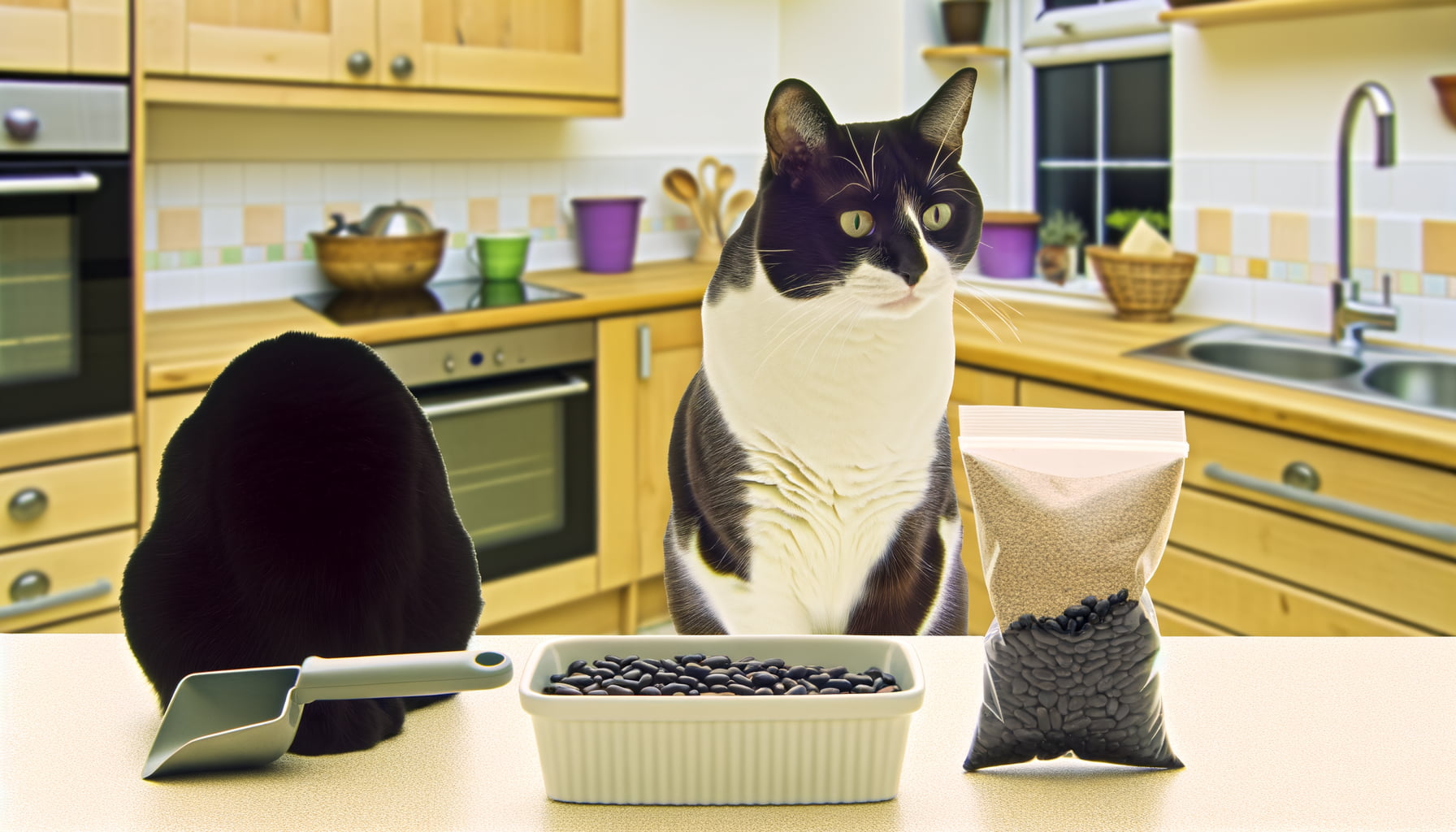
Introducing black beans into your cat’s meal plan requires careful planning. Begin by gradually adding small amounts to your cat’s regular meals. This approach helps their digestive systems adjust. If your cat shows any signs of discomfort or rejection, it is best to stop and consult a veterinary professional.
Further, black beans should always be cooked before serving. Raw or undercooked black beans contain certain compounds which could be harmful to your pet. Cooked beans, however, can offer health benefits, such as aiding digestion and providing additional nutrients. Remember, black beans should never replace the prime components of a cat’s diet, which primarily consist of meat and other proteins.
Additionally, it’s essential to serve the beans unseasoned. Cats’ systems aren’t equipped to handle many of the condiments and flavorings we enjoy in our food. Salt, garlic, and onion are particularly dangerous for cats, so keep your beans as bland as possible. Making these strategic adjustments will allow for a healthier integration of black beans into your cat’s diet.
Conclusion
Exploring the truth about cats and black beans unveils the importance of understanding feline diets. As cat owners, it is crucial to be aware of the foods that are safe and beneficial for our furry friends. By delving into the intricacies of their nutritional needs, we can ensure their health and well-being for years to come.
Through careful consideration and research, we can make informed choices when it comes to feeding our beloved pets. By prioritizing their dietary requirements and avoiding potentially harmful ingredients, we can cultivate a long-lasting bond with our feline companions based on mutual care and respect.
